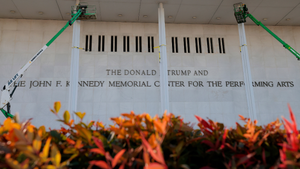Police arrested
Malaysia's leading opposition figure on Wednesday on
suspicion that he sodomized a male aide -- the second time
in a decade he has faced the accusation that could
send him to jail for 20 years and hobble his campaign
to bring down the country's government.
Anwar Ibrahim,
61, dismissed the accusation -- made last month by the
23-year-old aide -- as a "malicious" fabrication by the same
ruling establishment that jailed him for sodomy and
corruption in 1998.
"This is not a
criminal case but a political case," said Azmin Ali,
vice president of Anwar's People's Justice Party.
The arrest will
give some breathing space to Prime Minister Abdullah
Ahmad Badawi's government, which is struggling to cope with
internal dissent after recent election losses and
threats by Anwar to seize power by mid September.
Abdullah's administration has denied any role in the
sodomy allegation against Anwar, the only Malaysian
politician to face the accusation.
Sodomy, even
between consenting adults, is punishable by up to 20 years
in prison in Malaysia.
His lawyers said
he will remain in detention at least overnight and
possibly longer.
"The excuse is
that they need to take further statements" from Anwar,
said Sankara Nair, one of his lawyers.
Anwar had agreed
to voluntarily submit himself for questioning at police
headquarters Wednesday, but was arrested outside his house
an hour before the designated time by a posse of
policemen, some wearing ski masks.
"There was a lot
of fear and intimidation. It was absolutely
unnecessary," said Nair, who witnessed the arrest.
Anwar was pulled
out of his car as he returned home from an engagement
and was driven to the police headquarters in a car with
tinted windows.
Nair said Anwar
was arrested as a suspect for the alleged sodomy of the
male aide. Anwar can be held as a suspect for up to 14 days
without being charged.
The sodomy
allegation revived images of a similar ordeal in 1998 when
Anwar was fired as deputy prime minister and finance
minister after being accused of sodomizing his family
driver.
Anwar, who at the
time was part of the ruling National Front coalition,
was subsequently convicted and jailed in what he says was a
conspiracy by then Prime Minister Mahathir Mohamad to
win a power struggle. Anwar's downfall led to massive
street protests by his supporters for weeks.
Malaysia's
supreme court later overturned the conviction, but by then
Anwar had served six years in prison on a related abuse of
power charge. He was freed in 2004, reviving his
political career as an opposition leader.
For the past
year, Anwar worked tirelessly to bring the ideologically
divided opposition into an alliance that recently shook up
the National Front coalition that has ruled the
country since it gained independence from Britain in
1957.
In March the
Front lost its two-thirds majority in parliament as the
opposition alliance won 82 of the 222 seats and took control
of governments in five of Malaysia's 13 states. The
outcome radically changed the political landscape of a
country long accustomed to semi-authoritarian
government.
Anwar's arrest,
at a time he was threatening to bring down the government
with defections, seemed certain to exacerbate the political
divisions and tensions that have been running high in
Malaysia since the elections.
As news of the
arrest spread, scores of supporters, including opposition
lawmakers and his wife, Azizah Ismail, gathered outside the
police headquarters. After eight hours of
interrogation, Anwar was taken to a hospital for a
medical examination before being brought back to the
headquarters. No DNA testing was done.
Meanwhile, about
200 supporters milled around peacefully on sidewalks and
on the main street, which was closed to traffic, while a
heavy police presence, armed with water cannons,
kept a close watch. There was no violence, but one
woman was seen being dragged away for insulting the
police. Some people held aloft lit candles.
Anwar's wife said
Anwar told her in a telephone conversation that police
were "not gentle" with him.
Home Minister
Syed Hamid Albar said the police had acted within the law
while Criminal Investigation Department chief Mohamad Bakri
Zinin said in a statement that Anwar was "safe under
police custody."
U.S. Ambassador
to Malaysia James Keith said in a statement that the
arrest of a prominent opposition figure, "raises serious
questions and concerns." (AP)




































































Charlie Kirk DID say stoning gay people was the 'perfect law' — and these other heinous quotes